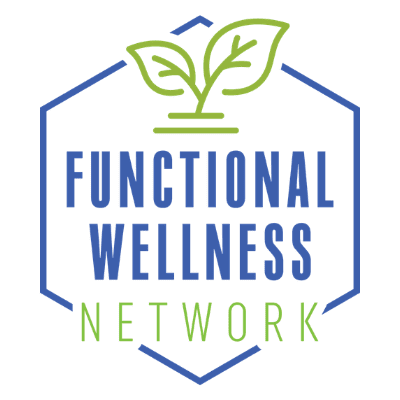In today’s healthcare landscape, functional medicine is emerging as an innovative and transformative approach that redefines how we understand and treat diseases. It represents not only a shift in patient care but also a revolution in medical education. As professionals seek answers beyond symptoms and address the root causes of diseases, functional medicine is positioned as the future of health training.
A Patient-Centered Approach
Unlike traditional medicine, which often focuses on treating symptoms in isolation, functional medicine adopts a patient-centered approach. It considers the individual as a whole, integrating genetic, environmental, emotional, and lifestyle factors. This paradigm requires future healthcare professionals to learn how to personalize treatments, fostering a closer and more collaborative doctor-patient relationship.
Patient-centered care allows for a deeper understanding of how factors such as diet, stress, environmental toxin exposure, and genetics influence the onset of diseases. This holistic perspective promotes greater empathy and connection between healthcare professionals and their patients, which is essential for improving health outcomes.
Training in Identifying Root Causes
Functional medicine is based on identifying the root causes of chronic diseases. This requires a deep education in biochemistry, physiology, genetics, and behavioral sciences. Training programs, such as those offered by the Institute for Functional Medicine (IFM), prepare professionals to analyze complex interactions between biological systems and develop personalized therapeutic strategies.
Understanding the pathophysiology of diseases from a systemic perspective is essential. Professionals learn to identify imbalances in the gut-brain axis, mitochondrial dysfunctions, hormonal alterations, and nutritional deficiencies that contribute to the development of chronic conditions like diabetes, cardiovascular diseases, and autoimmune disorders.
Promoting Prevention and Wellness
Instead of focusing solely on treating diseases after they manifest, functional medicine prioritizes prevention. Functional medicine practitioners are trained to identify risk factors at early stages and design proactive intervention plans that optimize long-term health. This philosophy is fundamental in the future of medical education, where prevention will play a crucial role in reducing the burden of chronic diseases.
The preventive approach includes promoting healthy lifestyles, stress management, encouraging regular physical activity, and adopting a balanced and personalized diet. Prevention not only improves patients’ quality of life but also significantly reduces healthcare costs on a global scale.
Integration of Science and Evidence-Based Medicine
Although some may perceive functional medicine as an alternative discipline, it is firmly rooted in science and evidence-based research. Education in this field includes critical analysis of scientific literature, evaluation of advanced biomarkers, and understanding how nutrition, the microbiome, and environmental exposure influence health.
Functional medicine professionals stay up-to-date with the latest scientific advances, allowing them to apply evidence-based interventions to improve patient health. Additionally, functional medicine fosters continuous research to validate and enhance clinical practices, ensuring treatments are effective and safe.

Preparation for 21st Century Health Challenges
The 21st century presents unprecedented health challenges, such as the rise of autoimmune diseases, antibiotic resistance, and the complexity of chronic illnesses. Functional medicine equips professionals with tools to effectively address these challenges, combining cutting-edge technology with a comprehensive health approach.
The growing prevalence of chronic diseases requires a shift in the healthcare paradigm. Functional medicine offers innovative solutions to prevent and treat these conditions, focusing on optimizing health and well-being rather than merely controlling symptoms.
Development of Critical and Analytical Skills
Training in functional medicine fosters critical thinking and the resolution of complex problems. Professionals learn to interpret a wide range of clinical data, from genetic analyses to mitochondrial function tests, allowing them to personalize interventions and improve health outcomes.
Analyzing clinical data and integrating information from diverse sources are essential skills in functional medicine. Professionals must be able to identify patterns, formulate hypotheses, and design personalized treatment plans based on scientific evidence and the individual needs of each patient.
The Role of Continuing Education
The rapid advancement of medical science requires continuous training. Functional medicine promotes the constant updating of knowledge through seminars, specialized courses, and international conferences. This mindset of lifelong learning is essential for the healthcare professionals of the future.
Continuing education not only enhances clinical skills but also fosters innovation and the development of new therapeutic strategies. Functional medicine professionals are committed to lifelong learning, enabling them to provide high-quality, evidence-based care.
Global Impact and Adaptability
Functional medicine is not limited to a specific geographic region or healthcare system. Its universal approach allows it to adapt to different cultural contexts and health systems, making it a powerful tool for improving global health.
The adaptable approach of functional medicine allows its implementation in diverse populations and healthcare settings. This flexibility is crucial for addressing global health challenges, including inequality in healthcare access and the need for personalized solutions for different communities.
Success Stories and Empirical Evidence
Numerous studies and clinical cases have demonstrated the effectiveness of functional medicine in treating chronic diseases. For example, research published in high-impact scientific journals has shown significant improvements in patients with autoimmune diseases, metabolic disorders, and mental health issues following the implementation of functional medicine-based interventions.
Empirical evidence supports the use of personalized interventions, such as dietary changes, nutritional supplementation, stress management, and detoxification therapies, to improve immune function, reduce chronic inflammation, and optimize metabolism. These results highlight the potential of functional medicine to transform healthcare and enhance patients’ quality of life.
The Future of Medical Education: Innovation and Transformation
Functional medicine is redefining medical education by integrating the most advanced scientific knowledge with a patient-centered approach. Educational institutions are incorporating functional medicine programs into their curricula, recognizing the need to train healthcare professionals with the skills to address 21st-century challenges.
Innovation in medical education includes the use of digital technologies, such as telemedicine and artificial intelligence, to improve training and clinical practice. Additionally, interdisciplinary collaboration and case-based learning are key components of functional medicine training, preparing professionals to provide comprehensive, high-quality care.
Functional medicine represents an evolution in how we educate healthcare professionals. Its holistic approach, based on science, prevention, and personalized treatment, positions it as the future of medical education. As the world faces new health challenges, functional medicine offers a hopeful and effective vision for building a healthier future for all.
The commitment to continuous education, the integration of science and evidence, and the patient-centered approach are fundamental pillars of functional medicine. These principles will guide the transformation of healthcare and health education, promoting a more effective, sustainable system focused on the comprehensive well-being of individuals.
At Functional Wellness Network, we believe that education and collaboration are essential to transforming lives. That’s why we host meetings twice a month on Thursdays, providing a space for learning, answering questions, and sharing experiences with other healthcare professionals committed to the comprehensive well-being of their patients.
Our mission is to create a community that supports one another in the pursuit of practical and effective solutions, helping to improve the quality of life for those we serve. As a healthcare professional, you play a crucial role in guiding your patients toward informed decisions that positively impact their long-term health.
Why not become part of this network of experts dedicated to global wellness? We would love to have you join us in our upcoming sessions.
Dr. Kent Nelson
Functional Wellness Network
www.functionalwellnessnetwork.com




